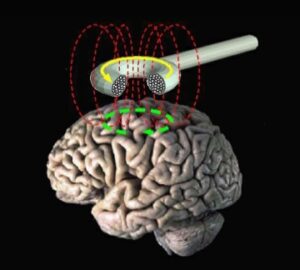
Transcranial Magnetic Stimulation (TMS) is a non-drug treatment for illnesses like depression which is gaining clinical adoption after FDA clearance of new protocols such as SAINT. Brain Frequency LLC and Wave Neuroscience Inc. both offer types of personalized TMS involving a pre-procedure electroencephalogram (EEG) assessment.
In recent Western District of Texas patent litigation between these companies, the Court excluded an expert witness’s testimony since Brain Frequency had failed to show that their expert was sufficiently skilled. The Federal Circuit’s test for patent expert admissibility is that the expert must at least meet the definition of a POSITA for the patents-in-suit (see ).
At the claim construction stage, the parties disagreed about the level of experience required to be a POSITA in this field. Brain Frequency proposed that a POSITA would have, among other things, “advanced training and experience” in either EEG or TMS technology. Wave Neuroscience’s proposed POSITA, on the other hand, required training or experience in both EEG and TMS.
The court determined that the patents at issue were focused on a TMS technique, which uses EEG results, but only as one part of the process. Thus, the court reasoned, EEG training and experience, by itself, could not qualify an expert to testify about TMS. The Court found that a POSITA would have advanced training or experience in both EEG and TMS.
Under this definition, the court found that Brain failed to demonstrate that its expert had sufficient skill. Although Brain’s expert had a graduate degree in neuroscience and work experience in EEG, the Court determined that his TMS experience was lacking.
However, the motion to strike was granted without prejudice. A Notice of Cure was filed in which Brain Frequency’s expert detailed his involvement in a study treating subjects with both TMS and EEG. The Court accepted this, the motion to strike was vacated, and the expert’s opinions will be allowed
Leave a Reply